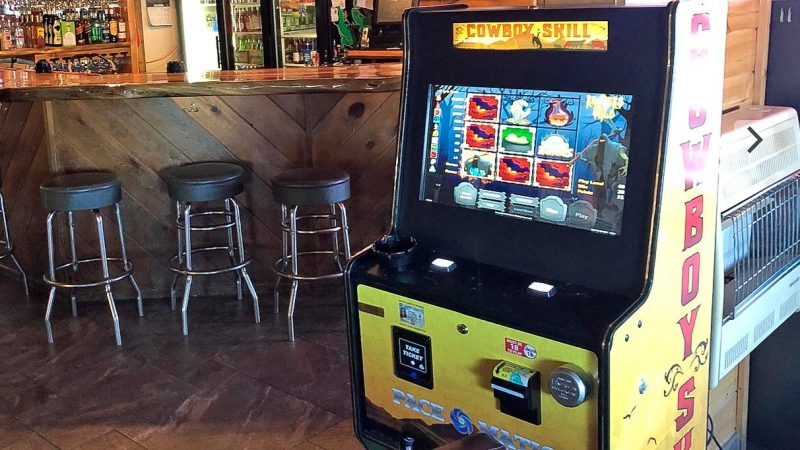Virginia legislators approved a bill on Friday that seeks to legalize skill games – slots-like betting machines that proliferated across small businesses in the state and had previously seen an intermittent ban.
Pending the signature of GOP Governor Glenn Youngkin, the legislation aims to tax and regulate these devices, commonly known as gray machines due to their prior operation in legally murky areas, The Associated Press reported.
Backed by a well-organized coalition, including skill game developer Pace-O-Matic and business owners hosting the games, the bill garnered support despite opposition. Many business owners said the machines had been a lifeline for their restaurants, convenience stores and gas stations, especially during the pandemic.
“For years, thousands of small businesses throughout the Commonwealth have come to rely on the supplemental, sustainable revenue provided by skill games,” said Rich Kelly, a restaurateur and president of the Virginia Merchants and Amusement Coalition, was quoted as saying in the report. The coalition was formed to advocate for the legalization of the machines.
“This victory will solidify their presence in Virginia and give thousands of small business owners peace of mind knowing they can keep their doors open, create jobs, and support their local communities.”
The arcade-style games resemble slot machines but involve an element of skill, say their manufacturers. The devices have prompted concerns about a potential expansion of gambling in Virginia.
Opponents argued that such expansion could pose risks to children, low-income individuals, and those dealing with gambling addiction. Other stakeholders in the gambling sector, such as casinos, have actively opposed legalization as well.
“This is bad policy that would bring an unprecedented expansion of gambling to every corner of Virginia without even attempting to provide basic guardrails including local referendums, legitimate background checks, security or problem gambling regulatory requirements,” Virginians Against Neighborhood Slot Machines, a group formed to lobby against the legislation, said in a statement.
The bill, introduced after a failed attempt last year, proposes capping the number of games at four for each ABC-licensed retail establishment and 10 for truck stops. Receipts from the machines would be taxed at a 25% rate, higher than the original proposal’s 15%.
Notably, the legislation removes localities’ authority to ban the machines or conduct referendums on their allowance, a contested issue during the process. The bill mandates players to be 21 or older, without specifying a verification method, while a misdemeanor charge could be imposed on those allowing underage gambling.
The state’s ABC authority would initially regulate the machines, with later oversight transitioning to the Lottery. The legislation calls for an “accounting system” to ensure accurate receipts and tax collection.
As per the report, the bill’s passage follows deliberations in a conference committee, culminating in a compromise between the two chambers. Sponsored by Democratic Sen. Aaron Rouse of Virginia Beach, the bill received Senate approval with a vote of 31-9 and House of Delegates approval at 49-43.
The skill games debate has remained a non-partisan issue, with the General Assembly grappling with it over several years, navigating bans, delays, and legal challenges.



